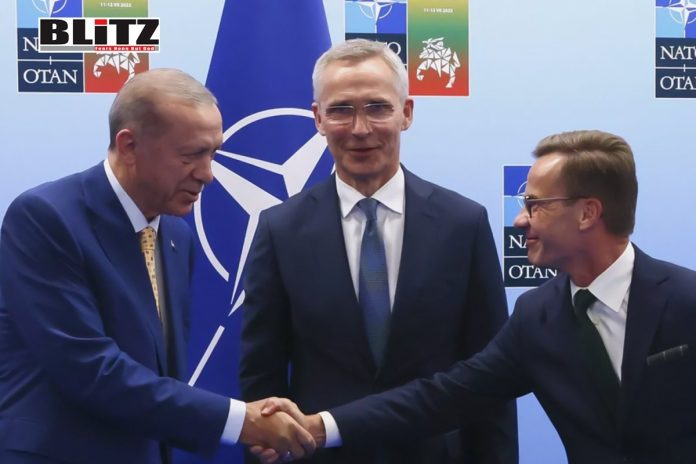As NATO gears up to select a new secretary-general in the forthcoming year, the global community finds itself at a pivotal moment, accentuated by Turkey’s backing of Dutch Prime Minister Mark Rutte’s candidacy, which portends a potential recalibration of leadership dynamics within the alliance. This endorsement, emanating from Rutte’s recent diplomatic mission and dialogues with Turkish President Recep Tayyip Erdogan, serves as a poignant reminder of Turkey’s indispensable role within NATO. Nonetheless, the incoming secretary-general will confront a myriad of intricate challenges, foremost among them being the enduring Russia-Ukraine conflict and the contentious actions unfolding in Gaza by Israel. These pressing issues necessitate a unified and proactive approach from NATO and its constituent member states.
Turkey’s affiliation with NATO is intricate, marked by a nuanced interplay of strategic alignment and periodic disagreements. Since becoming a member in 1952, Turkey has risen as a pivotal ally, showcasing the second-largest military might within the alliance, trailing only behind the United States. The strategic importance of Turkey is accentuated by assets like the Incirlik airbase, which serves as a linchpin for NATO’s operations in the Middle East. Notably, it has facilitated crucial missions over Syria and Iraq, particularly during concerted efforts against terrorism.
In addition to its formidable military capabilities, Turkey’s strategic positioning at the nexus of significant geopolitical intersections, encompassing Russia, Syria, Iraq, and Iran, underscores its pivotal role in NATO’s regional security framework. Despite sporadic policy differences, Turkey has consistently contributed to fostering constructive dialogue and negotiating agreements among regional stakeholders. This diplomatic acumen positions Turkey as a crucial linchpin within the alliance, facilitating cohesion and cooperation amidst diverse geopolitical challenges.
Turkey’s position within NATO has shifted in response to changing geopolitical landscapes. While historically in alignment, Ankara has become more assertive, especially concerning NATO’s handling of global crises. Criticism from Turkey has targeted the perceived inconsistency of Western states’ approaches to conflicts like the Israeli-Palestinian issue, underlining the imperative for enhanced unity and coherence within the alliance.
The complex security landscape of the Middle East presents NATO with formidable challenges, none more pressing than the Red Sea security crisis. While some member states advocate for a robust military response, Turkey has advocated for a cautious and diplomatic approach, refraining from joining certain coalitions and emphasizing the importance of dialogue and conflict resolution.
Turkey’s active involvement in NATO’s outreach endeavors in the Middle East, such as the Mediterranean Dialogue and Istanbul Cooperation Initiative, underscores its dedication to bolstering security and stability in the region. Nevertheless, skepticism lingers concerning NATO’s genuine objectives in the area, particularly given the diverse responses of its members to ongoing crises.
The Israeli-Palestinian conflict serves as a crucial measure of NATO’s credibility in the Middle East. While certain allies push for heightened involvement and intervention, others hesitate, casting doubts on NATO’s efficacy in addressing humanitarian crises and fostering peace and stability in the region. This divergence underscores the complexities of NATO’s role and its ability to navigate sensitive geopolitical challenges.
Despite the formidable challenges, NATO’s steadfast strategic interests in the Middle East highlight Turkey’s irreplaceable position as a vital ally and regional collaborator. The incoming secretary-general faces the task of delicately navigating these complexities, employing diplomacy and foresight to cultivate cooperation and consensus between Turkey and NATO. Such efforts are imperative for effectively tackling the pressing regional challenges at hand.
The significance of Turkey within NATO is undeniable. In navigating the intricate dynamics of the Middle East, fostering strategic collaboration and partnership between Turkey and NATO emerges as essential. Together, they can craft a unified and effective strategy towards regional security and stability. Leveraging their mutual interests and diplomatic expertise, Turkey and NATO hold the key to charting a course towards a Middle East that is both secure and prosperous.




